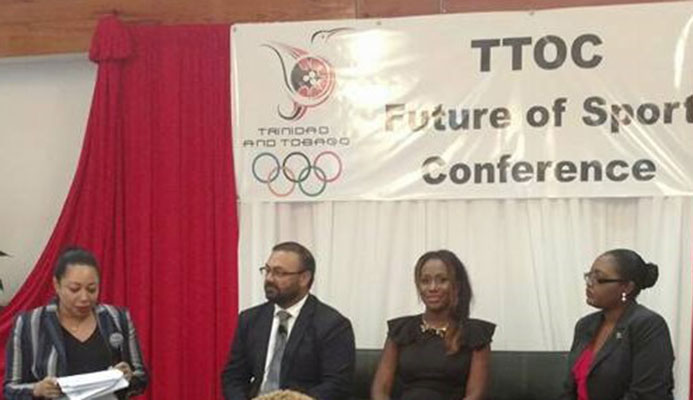Sport can be a powerful tool for development and economic diversification. This was the central thesis undergirding the Trinidad & Tobago Olympic Committee’s Future of Sport Conference 2017 which took place at Hotel Normandie in St. Ann’s, Trinidad last week. First let me once again commend TTOC President Mr. Brian Lewis and his team on a well-organised and informative event and for kindly inviting me to be a panellist. I also would like to give kudos to all fellow panellists, the moderator and to the audience for making the sessions as engaging as they were.
Sport is a multibillion dollar industry, and countries around the world are seeking ways to capitalise on this powerful tool for economic growth and development. For example, the small state of Qatar has identified sport as part of its national strategic plan. Among other upcoming international events, it will play host to the 2022 FIFA World Cup.
Here in the Caribbean we too have earmarked sport as a potential non-traditional growth sector. In his rousing key note address at the TTOC Conference, Chairman of Trinidad & Tobago’s Economic Development Advisory Board and former Deputy Governor of the Central Bank of Trinidad & Tobago, Dr. Terrence Farrell indicated as much, naming sport as a potential diversification sector for their currently hydrocarbons based economy.
Sport can also be an enabler for achieving the Sustainable Development Goals, which are targets set by the United Nations and to which all UN members agreed to pursue. Specifically, sport can assist not just in poverty alleviation (SDG 1), but also promoting good health and well-being (SDG 3), quality education (SDG 4), gender equality (SDG 5), and promoting peaceful and inclusive societies (SDG 16). Indeed, this was recognised by the UN through the adoption of a resolution recognising sport as a means to promote education, health, development and peace.
However, for sport to play such a transformational role for growth and development, it is not enough to have raw sporting talent. It is no secret that Caribbean countries’ sporting prowess dwarfs their economic and physical size. What is needed is a complete support structure. It requires not just the building of a sport entrepreneurial ethos, but a support system, including greater recognition of the role of intellectual property rights, financing and marketing, to name a few. It is this holistic approach which informed the four conference panels which aimed to take the would-be entrepreneur on a journey from conception of the idea to execution.
Again I would like to thank Mr. Lewis and his team for an excellent conference and I look forward to continuing the conversation on how we can harness sport for Caribbean development and growth. For videos and photos from the Conference, do have a look at the TTOC’s Facebook page.
Alicia Nicholls
Alicia Nicholls, B.Sc., M.Sc., LL.B., is a trade and development consultant with a keen interest in sustainable development, international law and trade. You can also read more of her commentaries and follow her on Twitter @LicyLaw.

